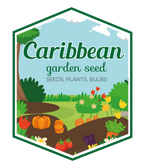
Soapweed Seeds - Perennial
- Get free shipping to lower 48 states on orders $54.95+ (Most Items), excluding live plants, plant bulbs, and black plastic nursery crate.
- Most orders are processed by the next day !
- Safe Seed Pledge
- Select your desired size and/or color from the available options.
Soapweed Yucca, a perennial evergreen with 2-ft clumps of grey-green leaves, produces tall spikes of white flowers in summer and woody seed pods in summer. A cold-hardy and drought-tolerant plant, it thrives in dry rocky soils and is often found in short grass prairies and desert grasslands.
Yucca glauca, also known as Soapweed or Spanish Bayonet, is a valuable plant for wildlife, providing food and shelter for small animals and attracting butterflies. It is also the host plant for the Yucca Moth, which pollinates the flowers and develops fruit. Its roots can be used to make soap, giving it the name Soapweed Yucca.
Yucca leaves have many practical uses, including making baskets, mats, sandals, paint brushes, brooms, and needles. They can also be used to make rope and propagated from seeds, stem cuttings, or rhizomes. These evergreen leaves are also used for their sharp points and can add a showy display..
Sowing: To soften the hard coating on these Yucca Glauca seeds, soak them in warm water overnight the day before planting. Sow the soapweed Yucca seed in early spring, planting just below the surface of the soil. Keep the soil lightly moist until germination.
Growing: Water seedlings several times as they become established. Mature plants prefer well-drained, rocky, dry soil and do not need watering. In excessively rich or moist soil, the plant will droop and become very limp. Remove dead leaves either in late fall or early spring, keeping in mind that gloves may be necessary for protection. This plant grows rather slowly, usually beginning to flower near its fifth year of growth.
LET OUR CUSTOMER SPEAK FOR US

![[Seeds] - Caribbeangardenseed](http://caribbeangardenseed.com/cdn/shop/files/gift-card-gift-card-1_1024x1024_dfa857db-9150-4315-a362-7f0bb3fb9c47_60x28.png?v=1722895789)








